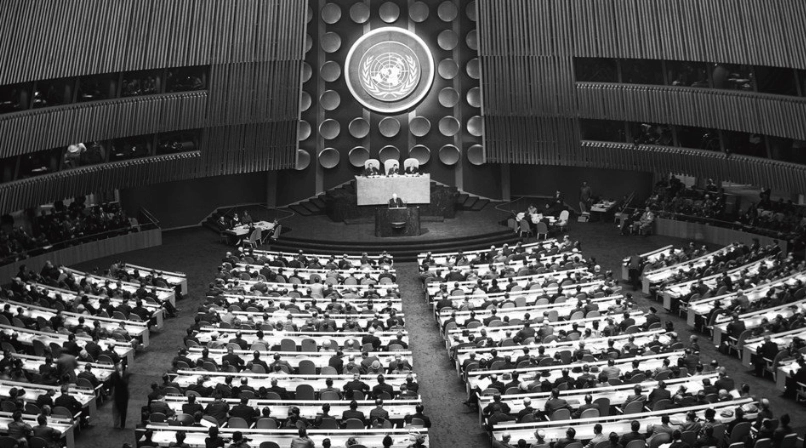In the complex scenario of international relations in the 21st century, it is essential to reconsider strategies in the face of interstate tensions. In this context, in a proposal that may raise a lot of dust, both among internationalists and in society itself, there is a solution that goes back to the practices of International Relations of past centuries: tolerance towards the creation of new States. As a structural difference, the constant observance and guarantee of the United Nations is proposed, taking advantage of the principle of self-determination of peoples highlighted in its founding charter.
Numerous global conflicts are rooted in sovereignty disputes over territories, driven by historical factors, and economic and ideological interests. The once effective post-World War II vision shows signs of wear, as is UN multilateralism, which has fallen into bureaucratization rather than promoting harmonization. The UN’s inability to stop Russia’s invasion of Ukraine, the unanswered cry in the skies over Secretary-General António Guterres’ invocation of Article 99 of the United Nations Charter in the face of genocide in Gaza, and the growing tensions over Taiwan or even on Esequibo by Venezuela are echoes of the need for structural changes in the UN’s capabilities.
A vision that worked well after World War II, but is continually breaking down, has stuck us in a rut. Similarly, UN multilateralism is failing, and instead of aiming at harmonization has fallen into bureaucratization. In this sense, why not assign the United Nations an additional role? It is worth replacing its decolonizing function, exhausted in the late 1990s, in order to revitalize the organization. This new role would involve overseeing the transition to independence of new states, giving their populations the legitimate opportunity to determine their own political future.
Although concerns may arise that these new states may become “puppet states” of their more powerful neighbors, history shows that human aspirations evolve over time. Examples from the post-Soviet space reveal that entities initially considered as “puppets” have been building their own identities and have even emerged as allies of the West and vehement opponents of their former dominators, even breaking with the imagery that once united them under a single state. On the other hand, it is necessary to delve deeper into the idea of whether it is necessary to continue with war agendas as the only way to build new spaces of independence, or whether human beings can reach a more pragmatic and functional stage in their primary interest of survival and quality of life.
Territories such as Kashmir, Kosovo, Nagorno-Karabakh, Western Sahara, Geneva, Taiwan, Transnistria, Crimea, and the Donbas could benefit from this supervised independence. The logic of the 21st century demands administrative and pragmatic solutions, without external impositions, allowing the population to make crucial decisions. In this process, the UN would assume the role of guarantor, supporting the process with the huge bureaucratic apparatus it has come to build. The implementation of a protocol supported by the missions of the organization could supervise transparent electoral processes. In case of rejection by the dominant state, foreign interference would be identified, activating the principle of collective security and resorting to peace missions. If independence were to gain support, the UN would oversee the transition to ensure the solid establishment of the new state.
This proposal would recognize the possibility of state fragmentation as a normal cycle of human evolution, acknowledging that the mutability of the state entity should not be discarded, let alone defended through armed means. The dissolution of Czechoslovakia serves as an initial legal example, providing a framework for developing processes tailored to specific circumstances and the aspirations of future generations. Ultimately, advocating this approach could offer a path toward more effective and sustainable diplomacy in today’s global arena. Of course, this is an initial proposal that deserves a thorough analysis and, above all, a community that supports and cross-cuts it.
The struggle for peace is an agenda philosophers have raised for centuries, and the common citizen has held it in his heart, probably since before writing, although the latter is only a premonition. In any case, humanity must find ways to make the next pages of its history less tinged with blood. With new tools, this would be more feasible. What is more, the first step is to raise them and start a new debate. The United Nations must change before it does what happened to the League of Nations, rust and collapse under its own weight.
*Translated by Micaela Machado Rodrigues from the original in Spanish.












